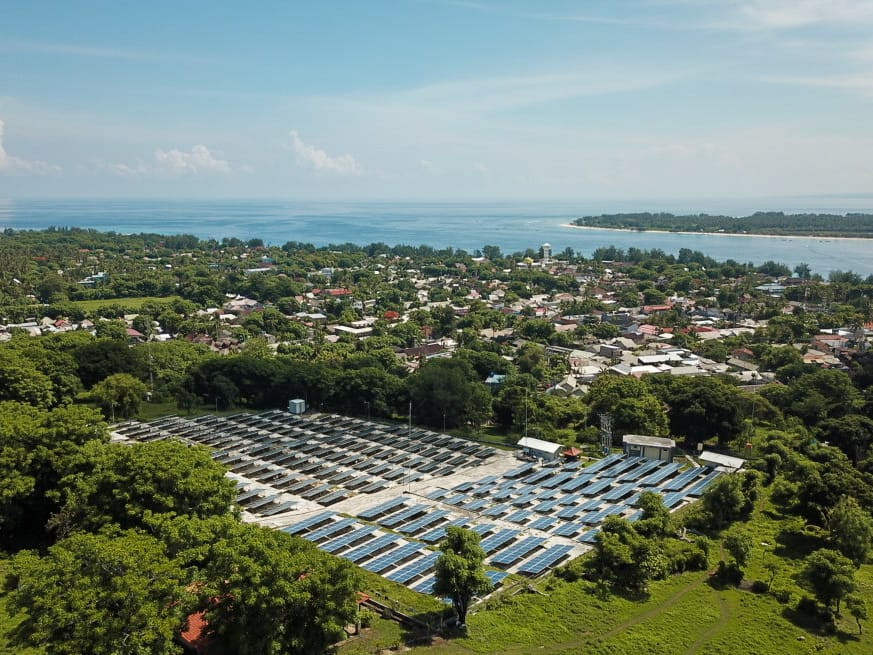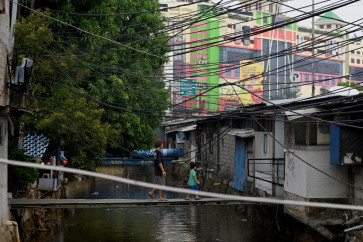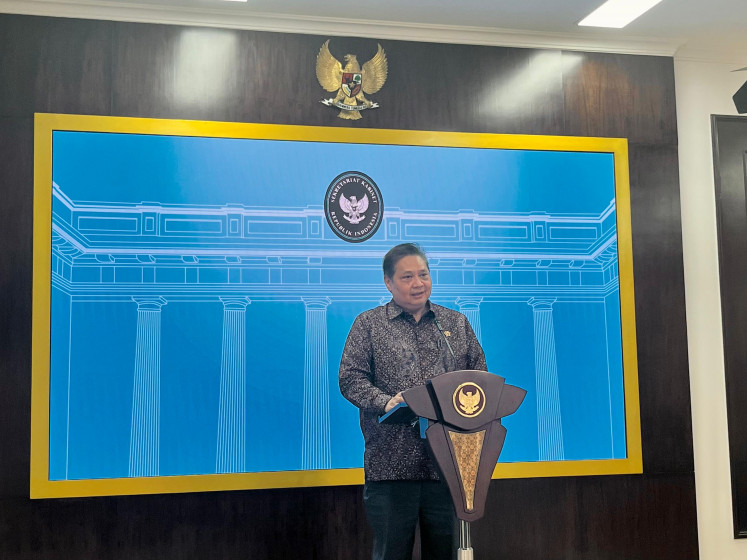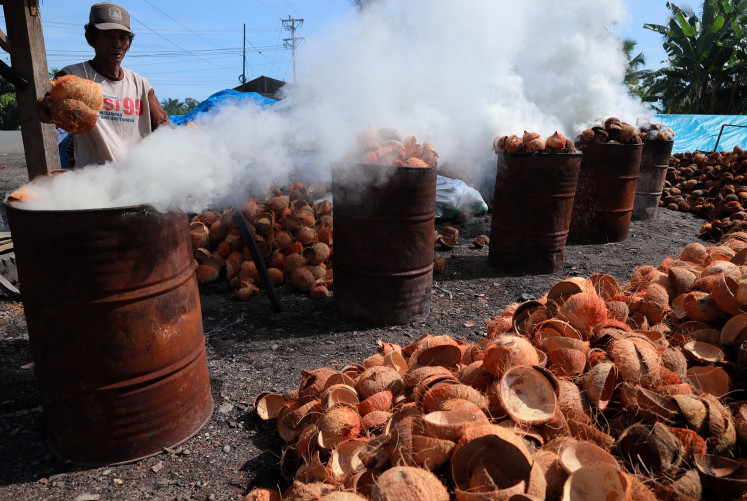RI, Singapore prepare rules for solar power export
Institute for Essential Services Reform (IESR) executive director Fabby Tumiwa said solar power exports would require Indonesia and Singapore to harmonize their regulations on the power sector to enable the electricity trade.
Change text size
Gift Premium Articles
to Anyone

T
he government is working on a new regulatory framework to enable solar power exports to Singapore after signing an agreement with the city-state to form a working group on the matter.
The group is tasked with discussing the rules and technicalities concerning cross-border electricity sales.
Institute for Essential Services Reform (IESR) executive director Fabby Tumiwa said solar power exports would require Indonesia and Singapore to harmonize their regulations on the power sector to enable the electricity trade.
The discussions are expected to encompass details on a mechanism for deciding who will build and manage the electricity transmission network.
“Regulations to govern the electricity trade must be [put in place] before the [solar] power plants begin to operate,” he told The Jakarta Post on Tuesday.
Read also: Indonesia on course to become major solar power exporter
Indonesia, Fabby explained, already had regulations on electricity exports, including Energy and Mineral Resources Ministerial Regulation No. 11/2021 on the electricity business, which includes stipulations on cross-border electricity trade.
Under the prevailing rules, there were three schemes for exporting electricity, namely the point-to-point, grid-to-grid-I and grid-to-grid-II schemes, the energy ministry’s electricity business development director, Ida Nuryatin Finahari, explained in an interview with CNBC Indonesia on Feb. 7.
Nevertheless, the IESR’s Fabby expected a revision to the existing regulations, considering the complexity of the electricity trade projects between Indonesia and Singapore.
“We are [preparing] for an update [of the electricity export regulations],” Ida told the Post on Tuesday.
Read also: Aiming for energy resilience, decarbonization through grid interconnections
Indonesia-Singapore energy cooperation
On Jan. 21, Energy and Mineral Resources Minister Arifin Tasrif and Singapore's Second Minister for Trade and Industry Tan See Leng signed a memorandum of understanding (MoU) to strengthen bilateral energy cooperation.
“[The MoU] is a basis for the two countries to encourage and improve initiatives for energy cooperation projects at the government and business levels,” Arifin said in a statement issued by the energy ministry on Jan. 27.
The scope of the MoU includes cross-border electricity interconnections and regional power grids, energy trading and energy project financing between the two countries.
The agreement also stipulates the formation of a Working Group on Energy, which would become a regular forum to establish, monitor and evaluate energy cooperation initiatives between the two countries.
“[We] will make sure that electricity exports are based on a thorough cost and benefit analysis for all stakeholders involved and will not interfere with the electricity supply in Indonesia,” the energy ministry’s Ida said, speaking in an interview with CNBC Indonesia on Feb. 7.
Read also: Medco Power to export solar power to Singapore
The MoU is part of Singapore’s larger scheme to achieve its climate target of peaking greenhouse gas emissions by around 2030 and halving them by 2050, according to the statement from Singapore’s foreign affairs ministry.
Furthermore, the city-state targeted 4-gigawatts-worth (GW) of low-carbon electricity imports by 2035, or roughly 30 percent of its total supply, to diversify supply and boost energy security.
As of today, there are a total of four joint ventures set up to develop solar power plants with the goal of exporting the produced clean electricity to Singapore, all of which are currently in the pilot project phase.
Abu Dhabi-based renewables firm Masdar signed on Jan. 18 an MoU with Singapore’s Tuas Power, France’s EDF Renewables and Indonesia’s PT Indonesia Power to explore renewable energy within Indonesia for Singapore.
The project is expected to have 1.2 GW of installed capacity and “potential associated storage”, according to a statement issued by Masdar.
“We welcome the steps taken by the government to meet domestic and regional [renewable] energy supply,” Indonesian Coal and Energy Suppliers Association (Aspebindo) chairman Anggawira said on Tuesday.









